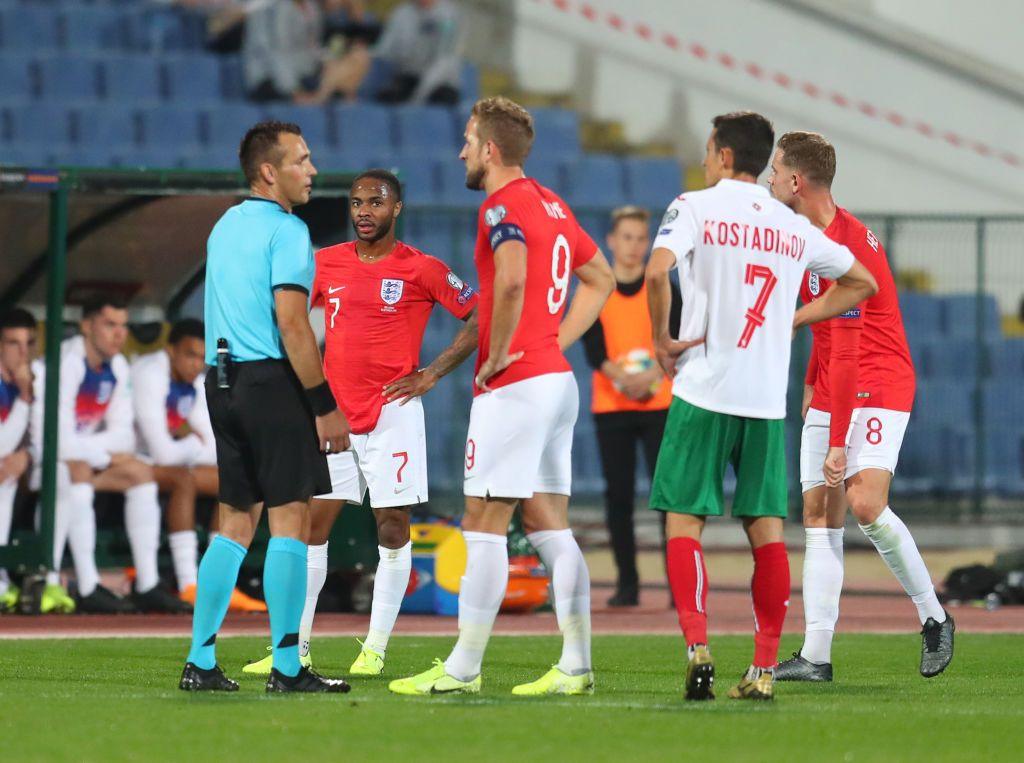UEFA’s three-step racism protocol, established in 2009, empowers referees to halt or abandon matches due to racist behavior. The protocol involves stopping the game, making announcements, and, if necessary, suspending play and removing players. It was notably invoked during England’s match against Bulgaria in 2019.
UEFA's commitment to eradicating racism from football took a significant step forward in 2009 with the introduction of a comprehensive three-step protocol. This initiative empowers referees to take decisive action during matches, including halting play and, if necessary, abandoning games in the face of persistent racist behavior. The protocol is designed to ensure a safe and inclusive environment for players and fans alike.
The protocol is initiated when a referee becomes aware of a racist incident occurring within the stadium. The referee's actions are structured in three distinct phases:
Step 1: Immediate Halt and Public Announcement: The referee immediately stops the game and instructs for an announcement to be broadcast over the public address system. This announcement explicitly calls on spectators to cease any racist behavior immediately.
Step 2: Temporary Suspension and Player Removal: If the racist behavior persists despite the initial announcement, the referee suspends the game for a period of five to ten minutes. During this time, the players are taken off the pitch, and a second announcement is made reiterating the call for an end to discriminatory actions.
Step 3: Abandonment of the Match: In the event that the racist behavior continues even after the second restart, the referee has the authority to abandon the match entirely. This decision is not taken lightly and is reserved for situations where the safety and well-being of players and spectators are at serious risk.
Before a match is abandoned, a thorough assessment of the security situation for both players and the public is conducted. Following the abandonment of a match, the case is automatically referred to UEFA's disciplinary authorities for further investigation and appropriate sanctions.
 Image source, Getty Images
Image source, Getty ImagesEngland's game against Bulgaria in Sofia in 2019 was halted twice by the referee
The protocol has been invoked in several instances, highlighting both its importance and the ongoing challenges in combating racism in football. One notable example occurred in 2019 during a match between England and Bulgaria in Sofia. The game was halted on two separate occasions due to racist abuse directed at England players Tyrone Mings and Raheem Sterling. Officials even threatened to abandon the match if the behavior persisted.
As a consequence of the racist incidents, Bulgaria was sanctioned by UEFA and ordered to play two matches behind closed doors. The Bulgarian FA was also fined 75,000 euros (£65,000).
While the protocol provides a framework for addressing racism during matches, its implementation has not always been consistent. There have been instances where England Under-21 players suffered racist abuse by Serbia fans. In one instance, England defender Danny Rose was sent off for kicking the ball away in reaction to racist chants from the crowd in Krusevac during a Euros qualifier in 2012. Rose reported that he was subjected to monkey chants throughout the game and had stones thrown at him.
UEFA's three-step protocol represents a crucial tool in the fight against racism in football stadiums. While challenges remain in ensuring its consistent and effective implementation, the protocol sends a clear message that racist behavior will not be tolerated. The protocol is still in effect and is still being implemented in football matches across Europe.
Ask Me Anything is a service dedicated to answering your questions.
We want to reward your time by telling you things you do not know and reminding you of things you do.
The team will find out everything you need to know and be able to call upon a network of contacts including our experts and pundits.
We will be answering your questions from the heart of the BBC Sport newsroom, and going behind the scenes at some of the world's biggest sporting events.
Our coverage will span the BBC Sport website, app, social media and YouTube accounts, plus BBC TV and radio.